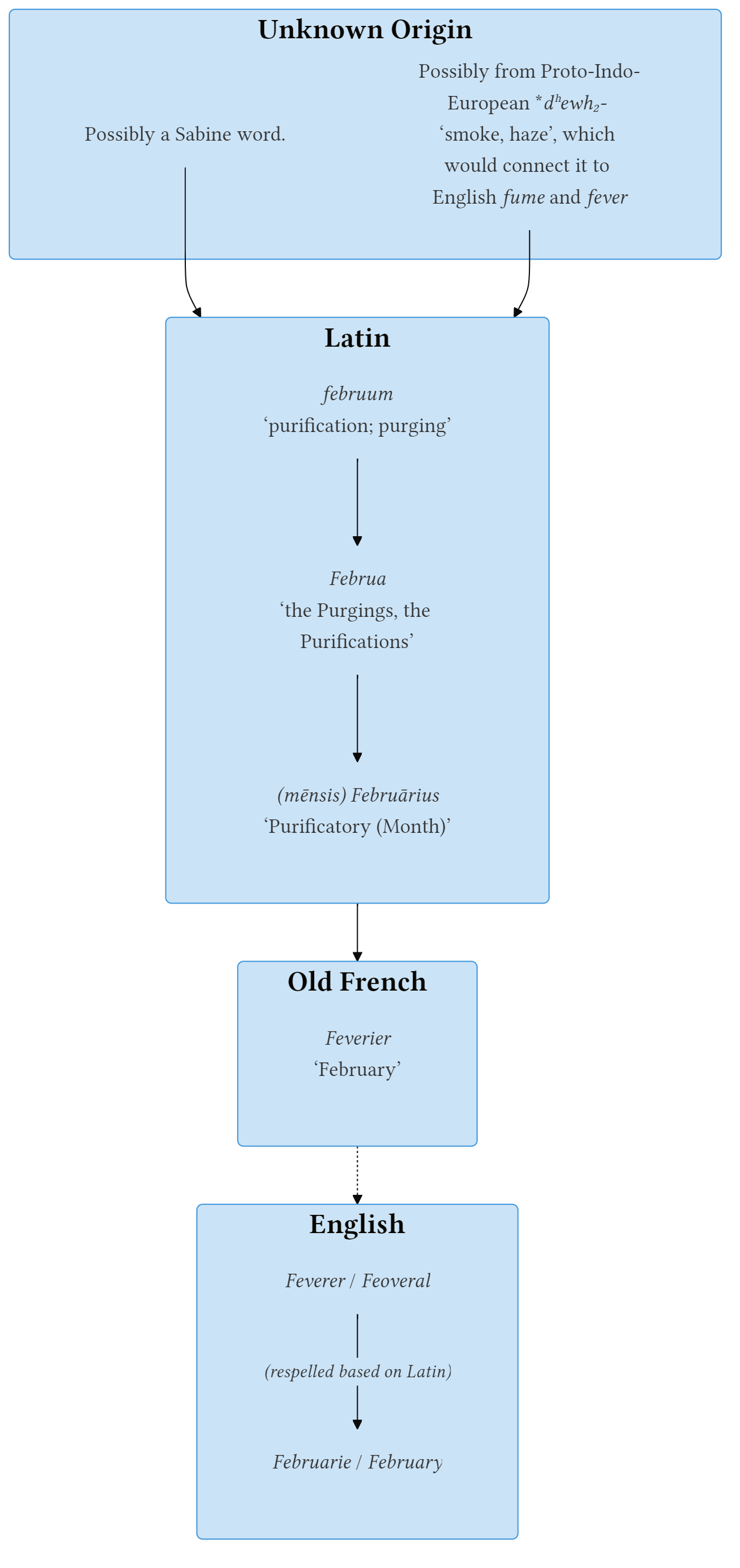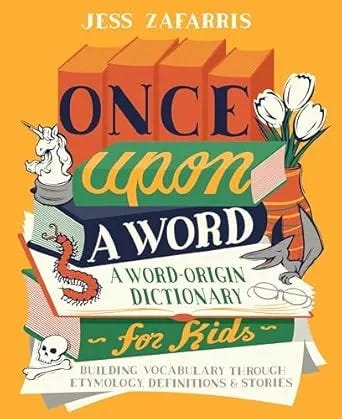The word in Latin was Februarius, and at that point in time every letter was pronounced, including the ⟨r⟩. But by the time English borrowed the word from Old French in the late 1300s, it was pronounced Feverer or Feoveral. So even though that /r/ was pronounced in Latin, it was gone by the time the word got to English. English has never pronounced it with an /r/.
However, February is one of those words which underwent etymological respelling, where scholars during the Renaissance changed the spelling of the word to match its original Classical Latin or Greek spelling, even though the word was no longer pronounced that way. If you’ve been following the blog, you read yesterday about another case of etymological respelling as well—herb!
Here are some other examples:
aisle
debt
doubt
indict
island
plumber
receipt
salmon
subtle
The silent consonants in those examples were pronounced in Latin but lost by the time those words got to English.
What did the English call February before they borrowed the word from Old French? The word that roughly corresponded to that same time of year was solmonað, but scholars are unsure of its meaning. Possible meanings are ‘Mud Month’ (from sol ‘mud, wet sand’), or (according to Bede) ‘Cake Month’ because this was purportedly the time when Anglo-Saxons would offer cakes to their gods. (Given England’s weather at that time of year, I find the ‘Mud Month’ to be the most plausible.)
Here’s the etymological history for February.
📖 Recommended Reading
📑 Sources
The Amazon and Bookshop.org links on this site are affiliate links, which means that I earn a small commission from those companies for purchases made through them (at no extra cost to you).
If you’d like to support Linguistic Discovery, purchasing through these links is a great way to do so! I greatly appreciate your support!















Share this post